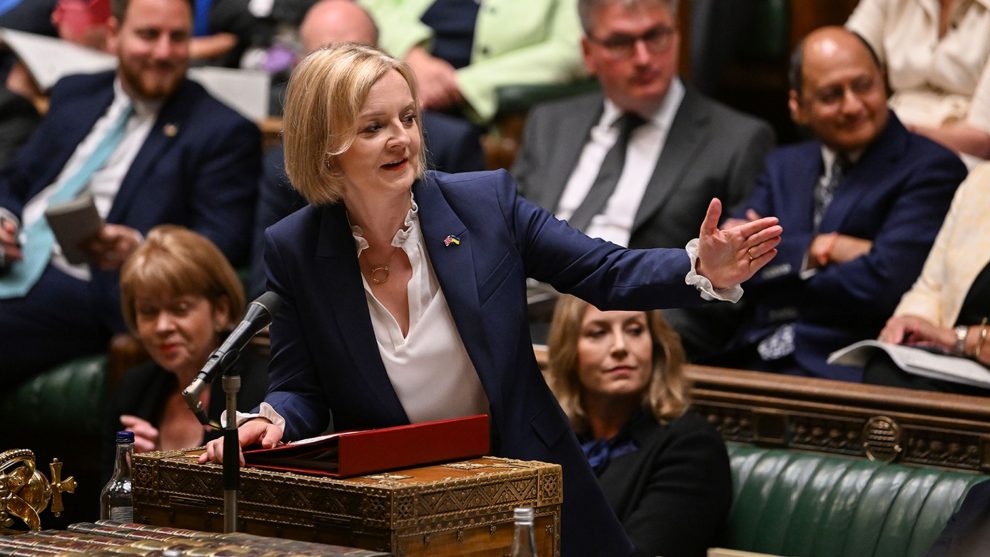ON THURSDAY morning, September 8, the Prime Minister unveiled her big idea to help UK families cope with spiralling energy costs over the next two years.
Mrs Truss said domestic gas and electricity bills in the UK will be capped at £2500 per year from October in a statement to the House of Commons.
The announcement means that families will only pay twice as much for their energy than they did last year.
The price cap is around £1,000 less than that already announced.
It’s still about £500 more than at present.
As well as households, businesses are also expected to receive some help. Many firms are currently facing even sharper rises than households, and many fixed-rate deals for business expire this October, exposing thousands of firms to full costs that could rise by four or five times or more.
She did not provide details of relief for businesses, apart from a brief mention that a similar measure would provide for six months of protection and targeted support for businesses most at risk.
Otherwise, Liz Truss kicked support for business into the long grass for cutting by Jacob Rees Mogg.
She said she would “not give in to the other side” on windfall taxes on energy firms as “that would undermine the national interest by disincentivising energy companies we need to invest in this country.
“We are doing important business to help people and businesses get through this winter and winter whilst helping Britain secure its long-term energy supplies.
“There will be as cost to this intervention, but we are facing a global energy crisis.”
Preseli Pembrokeshire MP Stephen Crabb praised the PM and said to the House: “Doesn’t this demonstrate Mr Speaker that Conservative Governments do not stand-by when help is needed.”
Shock data released this week shows that 355,000 companies with a turnover higher than £1m are designated as high energy users – industries such as steel, glass, concrete, and paper production.
Of those, an estimated 75,972 are at risk of insolvency, and 26,720 could fail because of energy costs.
That’s in addition to the 26,000 insolvencies already predicted this year.
Without a large-scale support package from the government, more businesses will fail than during the pandemic and any other recession.
A business turning over a million pounds two years ago would have spent around 8% of that on energy costs and made profits of around £90,000.
If the cost of energy doubles to 16%, that instantly wipes out profitability, and they’re straight into a scenario where it threatens the viability of the business within a year.
Beyond the large, energy-intensive companies, smaller companies with turnover under £1m were also at risk of failure, data analytics firm Red Flag Alert said on Tuesday (Sept 6).
In Pembrokeshire, some firms have already closed their doors – one example is the popular Haven Brasserie in Nolton Haven, which said it would shut for “reasons of economic uncertainty”.
The hospitality sector, which is a huge part of the local economy, is facing a triple threat of increasing energy bills, higher supply and staffing costs, and a fall-off in consumer spending, squeezed by inflation.
Red Flag Alert calculates businesses overall will need £100bn a year in support to tackle the rise in energy bills.
The government is already under pressure over how it will finance a promised package of support for households while sticking to promises to cut taxes.
Responding to the PM’s announcement, opposition leader Keir Starmer said the argument against a windfall tax was nonsense and that energy companies’ own announcements showed investment would not be deterred.
He said the PM was focused on protecting the excess profits of energy companies who reaped their unplanned benefit from Russian aggression. At the same time, ordinary families would end up repaying the money she’d borrowed years ahead through their bills.
Keir Starmer said that strategy was a tax on families instead of hitting big corporations who had failed to invest money in energy security and infrastructure.

















